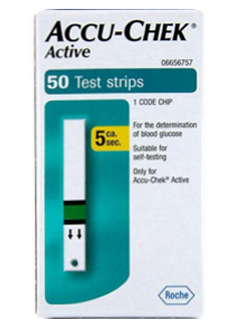

The authors included apps intended to support blood glucose (BG) monitoring and DM self-management in patients with type 1 DM (T1DM) and type 2 DM (T2DM). Our search encompassed articles published between January 2010 and December 2015. The PubMed database was searched for studies based on randomized controlled trials (RCTs), observational studies, post hoc analyses, and survey studies.
ACCU CHEK 360 SOFTWARE FREE ANDROID
Identification of mobile medical apps was based on a search of 2 commercially available platforms: Apple and Android app stores.

This article reviews mobile medical apps for DM that are commercially available in the United States or European Union (EU) and either have had clinical outcomes data published in peer-reviewed literature in the past 5 years or have been cleared by the FDA in the United States or have received a CE (Conformité Européenne) Mark in the EU. All of these devices can be produced containing decision support software that organizes data, analyzes data, and has the capability to further transmit the data to end users, including patients, families, and the health care team. Furthermore, additional platforms, such as computer tablets and glucose monitoring devices, including continuous glucose sensors and meters, can be used to provide digital health solutions. Therefore, aside from US Food and Drug Administration (FDA) clearance, there is little evidence to guide health care professionals in helping their patients choose the best DM app. 4, 6 However, most of the more than 1100 currently available apps 7 are similar, offer only 1 or 2 functions, and lack published outcome studies in peer-reviewed medical journals. Reviews have been published elsewhere that have evaluated commercially available mobile medical apps with a focus on functionality, usability, and outcomes 3– 6 (including those focusing on specific populations, such as the very young and those >50 years old). Smartphone technology provides an obvious platform for the development of mobile medical applications (apps) intended to help people with DM improve self-management and facilitate communication with their health care teams. In addition, self-management aims to involve patients in their own long-term care, which empowers individuals, increases self-efficacy, and reduces health care costs. Therefore, this approach has the potential to improve outcomes such as hemoglobin A1C (A1C), hypoglycemia incidence, and quality of life (QOL). 2 Specifically, for individuals with DM, mHealth could increase the capacity for self-management facilitate decision-making processes needed for optimal insulin dosing help sustain necessary lifestyle modifications and improve communication between patients, family members, and health care professionals. The promise of this approach is to improve care through enhanced access to health information. 2 mHealth facilitates remote monitoring and delivery of timely recommendations for health care. Mobile health (mHealth), a subset of telemedicine and health information technology, encompasses the use of mobile communication devices (such as mobile phones and other wireless devices) for health services and information. 1 Fifteen years later, these 3 factors are no less important. An Institute of Medicine report from 2001 identified 3 major factors contributing to the gap in care of patients with chronic illnesses: (1) increased demands on medical care from the rapid increases in chronic disease prevalence and the complexity of underlying science and technology (2) the inability of the system to meet these demands because of poorly organized delivery systems and (3) constraints in using modern information technology. Health care professionals who care for patients with diabetes face challenges related to having inadequate time and ability to view and effectively analyze patient glucose and insulin dosing data, which is usually provided in a format too cumbersome for a quick analysis. In addition, people with DM need to master reading and mathematics skills to effectively incorporate the principles of basal, bolus, and correction insulin doses to effectively manage their disease.

People living with chronic diseases face challenges related to knowledge deficiencies, inability to sustain lifestyle modifications, and scarce access to specialists for timely advice. Management of chronic diseases such as diabetes mellitus (DM) is difficult.


 0 kommentar(er)
0 kommentar(er)
